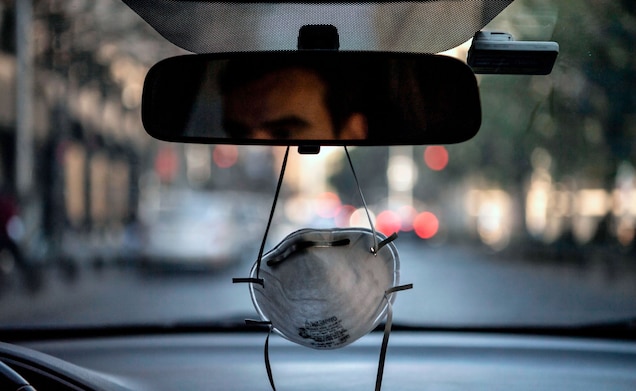
In State v. Harris, the WA Court of Appeals held that expert testimony in DV cases is not required to accompany evidence of a prior assault. However, a court may allow expert testimony on general characteristics or conduct typically exhibited by survivors of domestic violence.
BACKGROUND FACTS
The defendant Mr. Harris and the victim Ms. Bohannan have had a long romantic relationship. Bohannan has two young children, the youngest of which is the biological child of Harris. Due to prior domestic violence, there was a no-contact order prohibiting Harris from contacting Bohannan directly or indirectly, or coming within 300 feet of her residence. Bohannan was against the existence of the no-contact order.
On June 28, 2020, Harris went to Bohannan’s Everett apartment. Bohannan’s neighbor called police after hearing thumping and screams for help. Police arrived shortly afterward. Bohannan eventually allowed the officers inside, where they noticed what appeared to be fingerprints on her neck. A later body check revealed red marks on Bohannan’s arms and body. Bohannan said that Harris assaulted her, but did not want the statement in writing or photos of her injuries.
Shortly thereafter, Harris was arrested nearby the residence. While incarcerated, Harris had repeated telephone and video-call contact with Bohannan. The jail system that monitors calls captured the communications.
Harris was charged with three counts of Violation of a No-Contact Order. Prior to trial, the State introduced Harris’s prior conviction for assaulting Bohannan under Evidence Rule ER 404(b). Admitting the evidence was done to assist the jury in evaluating her credibility. Harris moved to exclude this prior conviction. The court denied Harris’ motions to exclude.
The jury found Harris guilty as charged. He appealed on arguments that the trial court erred by admitting evidence of a prior assault.
COURT’S ANALYSIS & CONCLUSIONS
The Court of Appeals began with an in-depth discussion of ER 404(b). It said this evidence rule prohibits a court from “admitting evidence of other crimes, wrongs, or acts . . . to prove the character of a person in order to show action in conformity therewith.” Additionally, evidence of a defendant’s prior assault of a victim is generally inadmissible if the defendant assaults the victim on a later occasion.
However, the Court of Appeals also said that evidence may become admissible for reasons such as assisting the jury in judging the credibility of a recanting victim. Before admitting ER 404(b) evidence, a trial court must (1) identify the purpose for which the evidence is sought to be introduced, (2) determine whether the evidence is relevant to prove an element of the crime charged, and (3) weigh the probative value against its prejudicial effect.
Ultimately, the Court of Appeals reasoned the trial court did not abuse its discretion in admitting evidence of Harris’s prior assault of Bohannan.
“The trial court determined that the State could prove the assault by a preponderance of evidence,” said the Court of Appeals. “The court also identified the purpose of introducing the prior assault—to challenge Bohannan’s credibility. Finally, the court properly balanced the probative versus prejudicial value of introducing the prior assault, and delivered a limiting instruction to the jury. These actions do not rise to an abuse of discretion.”
Next, the Court of Appeals reasoned that expert witnesses may testify on general characteristics or conduct typically exhibited by survivors of domestic violence. However, such testimony must not state that a specific victim witness exhibits the responses or characteristics of a crime victim or state the expert’s opinion of the victim’s credibility.
“Based on our review of Washington precedent, we decline to adopt a requirement that expert testimony must accompany evidence of prior assault to assist assessment of witness credibility. We do not, however, expressly prohibit such expert witness testimony. Rather, it is within the purview of the trial court to assess the proposed introduction of expert testimony and its adherence to requisite evidentiary rules.” ~WA Court of Appeals.
With that, the WA Court of Appeals upheld Harris’s conviction.
My opinion? This case captures how the State may use expert testimony from a witness trained in DV-related issues. If qualified, the expert provides information on how DV affects a victim’s perceptions and actions. Testimony may be introduced at any stage in the process, including grand jury hearings, plea negotiations, trials, sentencing, and clemency or parole hearings.
The most widely accepted use of DV experts is in traditional self-defense cases when a victim of DV victim injures or kills the abuser. DV experts are also used to explain why a victim commits a crime under orders from an abuser. They can discuss why a DV victim fails to report an abuser’s crimes, or does not prevent or intervene in the abuse of their children. Experts are often needed to explain why victims do not report, change their stories, recant testimony, or assist in the prosecution of perpetrators.
In my trial experience, expert witnesses may testify on general characteristics or conduct typically exhibited by survivors of domestic violence. However, such testimony must not state that a specific victim witness exhibits the responses or characteristics of a crime victim or state the expert’s opinion of the victim’s credibility.
Please read Defending Against DV Charges and contact my office if you, a friend or family member face DV charges or any other crimes. Hiring an effective and competent defense attorney is the first and best step toward justice.















